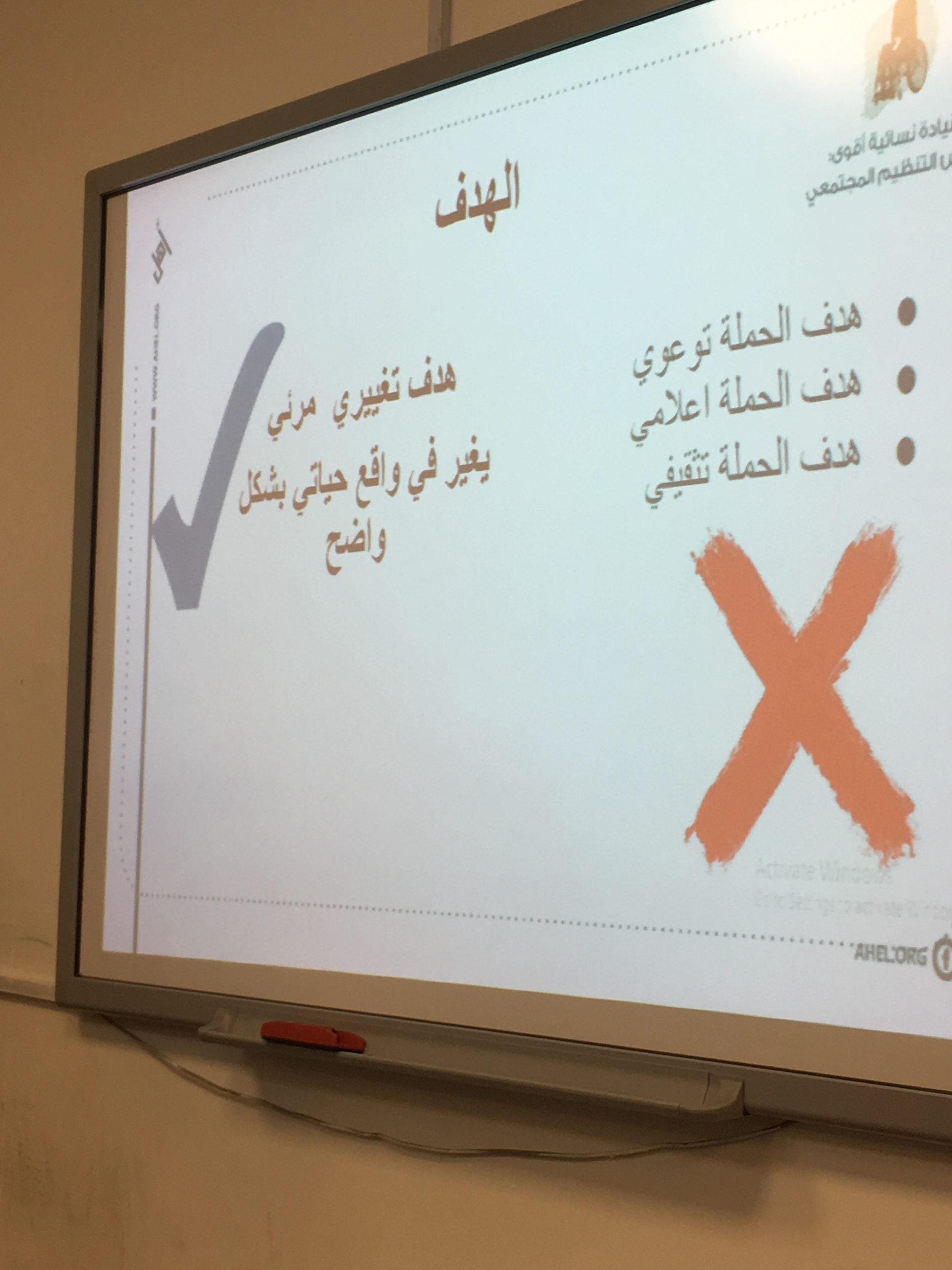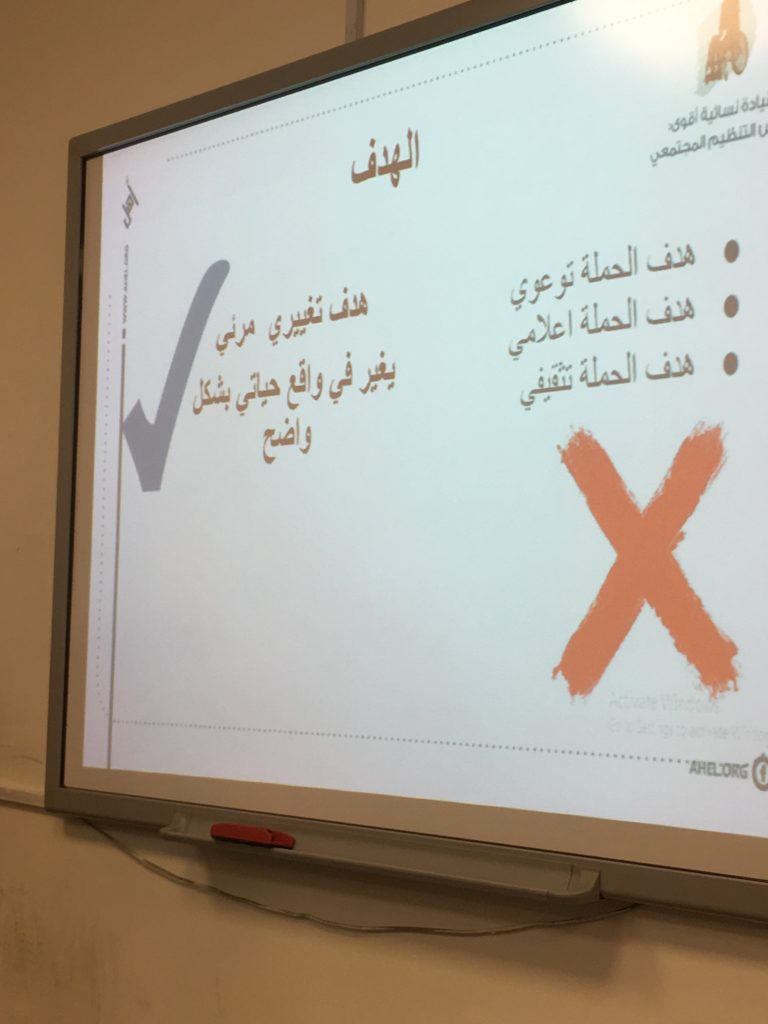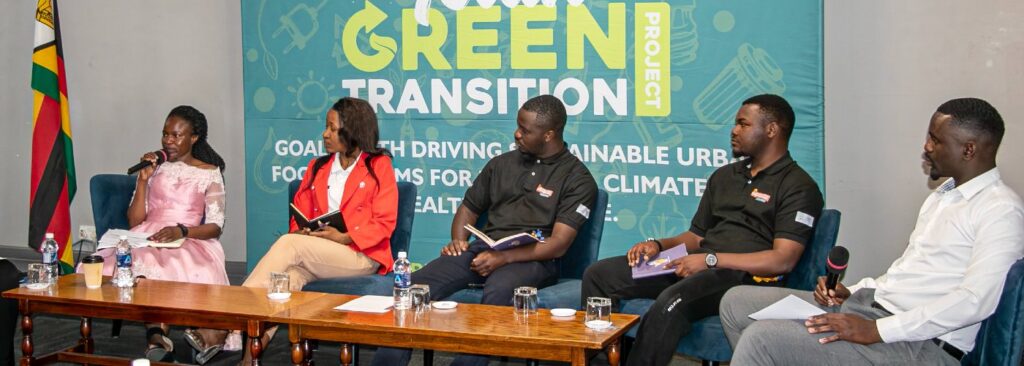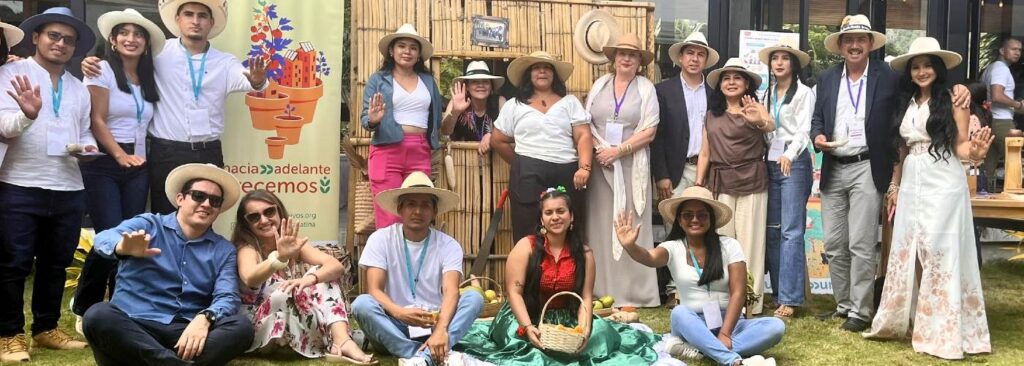id=”799″ id=”post-2372″ class=”wp-post-content-block ” itemscope itemtype=”http://schema.org/BlogPosting” itemprop=”blogPost”>
Towards stronger women leaderships in Jordan
By Shara Jazzar
Over the course of 3 months, 24 women leaders from across Jordan gathered every week in Amman to attend the “Principles of Community Organizing for Stronger Women Leaderships” course organized by Hivos, with the aim of enabling Jordanian women to impact political and societal development and opinions. Their commitment went even farther than physical attendance, as they invested time in reading on the topic in order to have a more comprehensive and deeper understanding of Community Organizing and how to make the best use of it.
Why this course?
This course aims to teach participatory leadership though which women can organize their resources and individual capacities to achieve the desired change through building the strength of their people.
Women can be considered a group with a common cause as they are faced with similar challenges and obstacles that hinder their access to the most basic social, economic and political rights. However, they are often kept away from leadership positions or even specific spheres that are considered male domain. The situation is worse in conservative societies – like in Jordan – because many social and religious excuses can be used to keep women ‘where they belong’; indoors, playing the sole role of caregivers. In order to reclaim what should be theirs in the first place, Jordanian women must learn how to effectively organize in order to influence decision-makers or become decision-makers themselves and induce change. This is what makes the course relevant and necessary.
How does Community Organizing support Jordanian women’s cause?
The Course introduced participants to a number of skills and competencies they will need to find their people and organize for their cause, for the sake of inducing change in society. These included using storytelling, developing a strong strategy, building relationships while ensuring commitment, relying on participatory leadership, and coming out with strategies and tactics. Additionally, participants engaged effectively throughout this learning package, which included discussions and role play that would showcase both positive and negative examples, in addition to coaching sessions.
Change of perspective and empowerment
In her testimony about the impact the course had on her, Kholoud, one of the participants, said that she “used to think that leadership was something innate”. During the course, she discovered that it is “something you actually learn”. Furthermore, the course affected her on both the personal and the professional level. “I didn’t use to trust anyone and would do everything myself,” she said. “Now, I have learnt how to trust others and delegate. I even started applying this principle at home!” Also, despite being active in the civil society for more than 20 years, Kholoud was exposed to new concepts and new ways to organize as a community. By adopting them, she enriched her own approach and benefited the people she works with.
As for Raya, the course made her realize that “what truly matters is not the success of a campaign but rather the positive impact that comes from increasing social awareness and triggering community organizing.” Furthermore, she is trying to share the knowledge she has acquired with her peers, in order to benefit them. Finally, the course opened the opportunity for her to meet with women coming from different backgrounds and share experiences with them, and possibly collaborate with them in the future.
Lasting impact
At the end of the course, which is worth noting is based on Marshall Ganz’s community organizing model, the women leaders became more capable to network and mobilize in order to support women leaderships in Jordan, and ensure they have a strong and clear voice in politics and society. This will result in women leaders collaborating and impacting political and societal development and opinions. In the light of the upcoming parliamentary elections, such skills will give women more chances to create electoral coalitions as well as develop stronger political programs and campaigns that would increase their chances of being elected and participating in the political life as leaders and decision-makers. This will eventually lead to a significant increase in women elected officials and new appointees at sub-national political and administrative level, participating fully and effectively.
To watch the video, click on the following link: https://youtu.be/h9HK9QFdvWc





